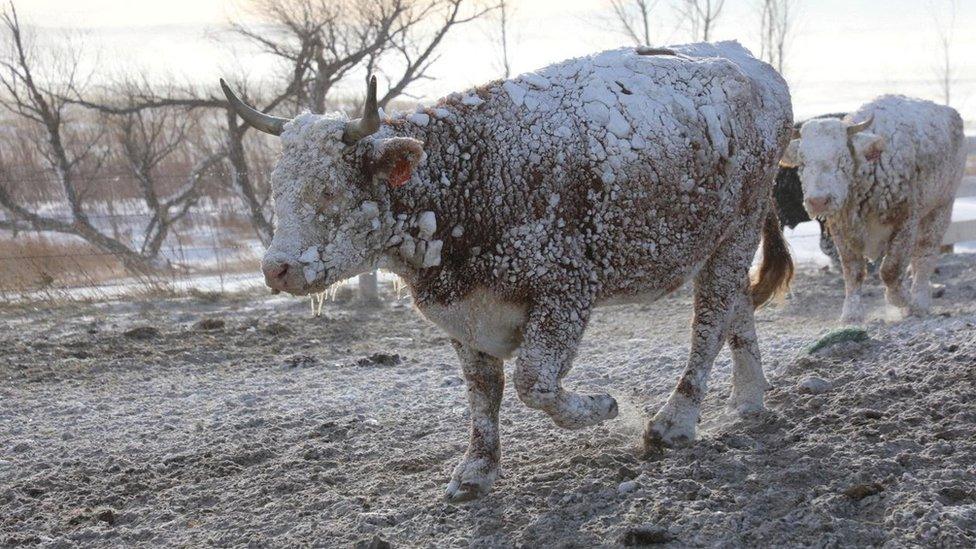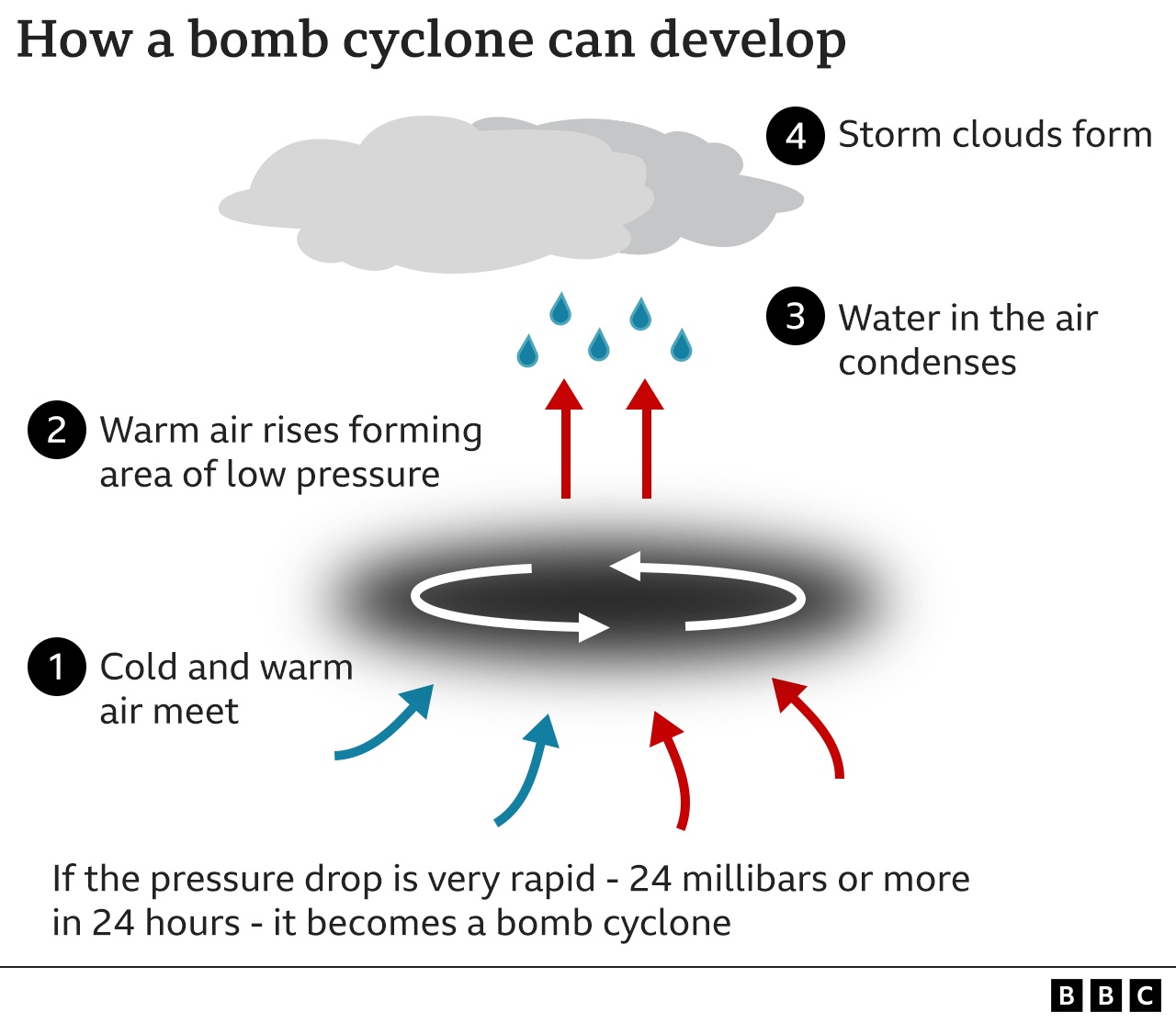US winter storm: Icy blast hits 250m Americans and Canadians
- Published
WATCH: Wind, snow, bitter cold combine for historic storm
Nearly 250 million Americans and Canadians are feeling the icy grip of a massive winter storm linked to at least 19 deaths ahead of the holiday weekend.
More than 1.5 million people lost power and thousands of flights have been cancelled since Thursday.
The vast storm extends more than 2,000 miles (3,200km) from Texas to Quebec.
A bomb cyclone, when atmospheric pressure plummets, has brought blizzard conditions to the Great Lakes on the US-Canada border.
Near white-out conditions have been reported in Minnesota, Iowa, Wisconsin, Michigan and Buffalo, New York, where the US National Weather Service (NWS) reported "zero mile" visibility, external.
In Canada, Ontario and Quebec were bearing the brunt of the Arctic blast, with power cut to hundreds of thousands.
Much of the rest of the country, from British Columbia to Newfoundland, was under extreme cold and winter storm warnings.
Temperatures in Elk Park, in the US state of Montana, dropped to -50F (-45C), while the town of Hell, Michigan, has frozen over.
It was 1F (-17C) in the snow-covered community on Friday night. Emily, a bartender at Smitty's Hell Saloon, told the BBC: "It's pretty cold here, but we're having a hell of a time."
In South Dakota, snowed-in Native Americans burned clothes for warmth after running out of fuel, said tribal officials.
Heavy snowfall was forecast in areas of Pennsylvania and Michigan.
More than eight million people remained under blizzard warnings, said the NWS, external.
Coastal flooding has been seen in New England, New York and New Jersey, inundating communities and downing power lines.

Cows walk in the snow following a blizzard in Sturgis, South Dakota
In the Pacific Northwest, some residents ice-skated on frozen streets in Seattle and Portland.
Even the usually milder southern states of Louisiana, Alabama, Florida and Georgia were experiencing hard-freeze warnings.
A number of the storm-related fatalities have involved road traffic accidents, including a 50-car pile-up in Ohio that killed four motorists. Another four died in separate crashes in the state.
Travel problems across the country were being exacerbated by a shortage of snowplough operators, with low pay rates being blamed.
Watch: Nick Miller has the latest weather forecast for North America
More than 5,900 US flights were cancelled on Friday, according to the tracking site FlightAware, as flyers battled to make it home for Christmas. Another 1,600 Saturday flights have already been cancelled.
Hundreds of thousands of people across the US have been without power since Friday, according to PowerOutage.us.
Utilities throughout the Tennessee Valley were implementing rolling blackouts to save power.
The NWS says more than 100 daily cold temperature records could be tied or broken over the next few days. Decades-old records have already been matched:
Denver, Colorado, dropped to -24F on Thursday, its lowest point since the 1990s. Craig McBrierty, 34, who is originally from Scotland, but now lives in Denver, told the BBC it is "colder than I have ever experienced"
Wichita, Kansas, recorded its coldest wind chill (-32F) since 2000
Nashville, Tennessee, saw its temperatures plunge to below zero for the first time in 26 years
Casper, Wyoming, set a new record low on Tuesday of -42F



Have you been affected by the severe weather in the US and Canada? Please email us: haveyoursay@bbc.co.uk, external.
Please include a contact number if you are willing to speak to a BBC journalist. You can also get in touch in the following ways:
WhatsApp: +44 7756 165803, external
Tweet: @BBC_HaveYourSay, external
Or fill out the form below
Please read our terms & conditions and privacy policy
If you are reading this page and can't see the form you will need to visit the mobile version of the BBC website to submit your question or comment or you can email us at HaveYourSay@bbc.co.uk, external. Please include your name, age and location with any submission.
